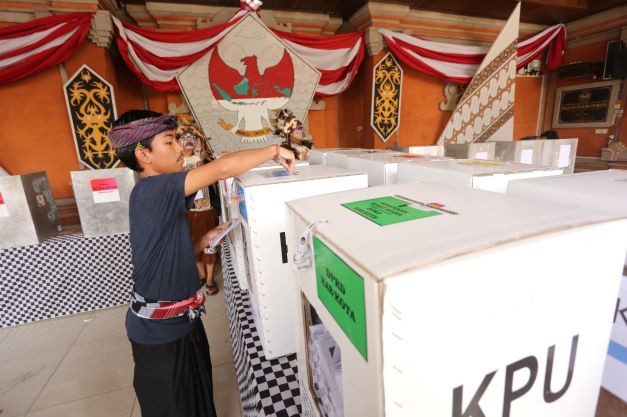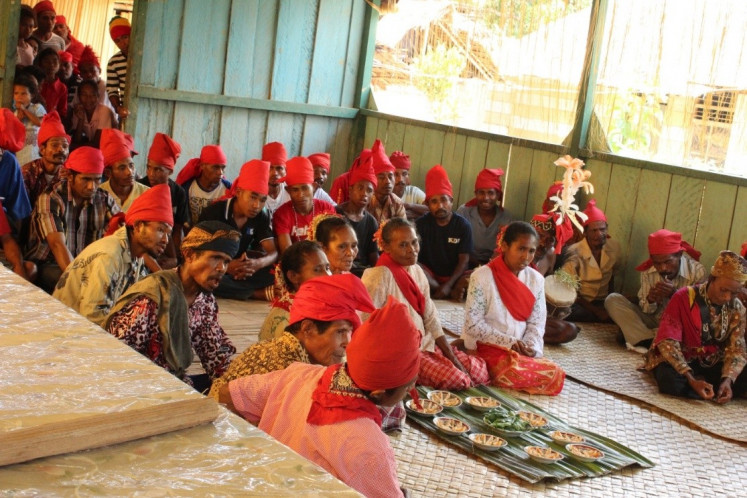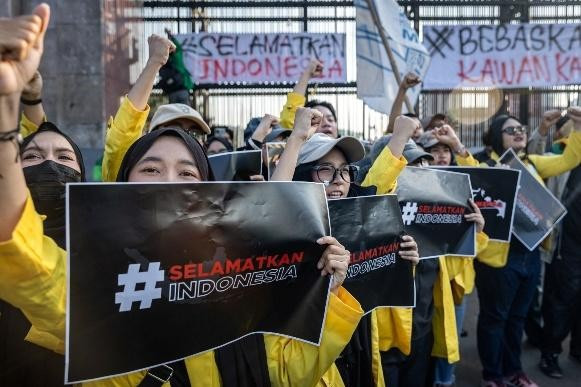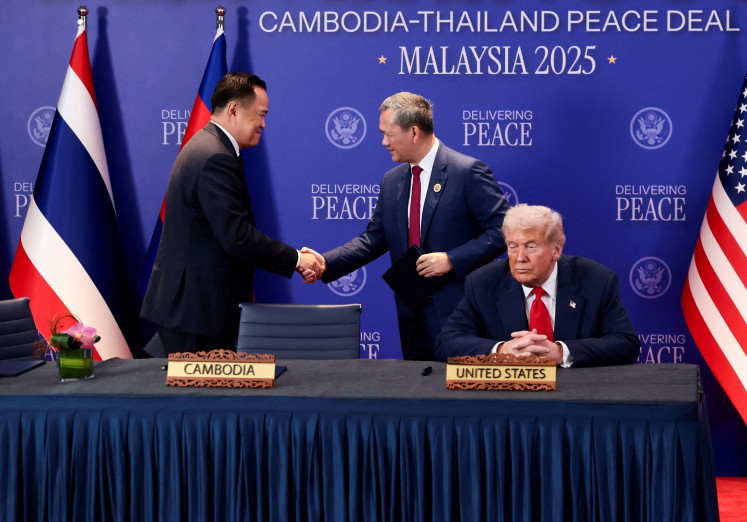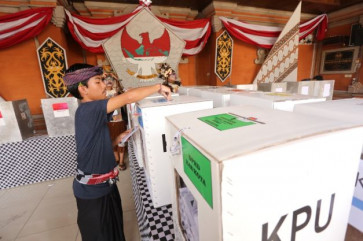Popular Reads
Top Results
Can't find what you're looking for?
View all search resultsPopular Reads
Top Results
Can't find what you're looking for?
View all search resultsSafeguarding democracy in the presidential system, 2024 and beyond
As voters prepare to head to the polls in mid-February, they should comprehend what constitutes democratic stability and collapse, along with their possible causes, and think about the type of leader the country needs to maintain the former and avoid the latter.
Change text size
Gift Premium Articles
to Anyone
P
lato’s protégé Aristoteles argued that a constitutional democracy is considered the worst of the good governing regimes, although it was still better than all other deficient ones. It was thus the form of government most capable of delivering justice, if it was based on the highest possible moral and ethical standards.
This is the governmental system under which a multitude of people from different socioeconomic classes can respect each other’s rights. It can only succeed when citizens of different socioeconomic classes participate equally in free and fair elections to elect and to be elected through the so-called procedural minimum, such as competitive general elections (Schumpeter, 1947; Dahl, 1971).
Thus, democracy is neither a fragile nor feeble system, but rather a highly resilient regime where a single debilitating factor is unlikely to bring about democratic collapse (Diskin et al., 2005).
It is therefore imperative for democratic citizens to comprehend both conceptually and practically what constitutes democratic stability and collapse, along with their possible causes.
By one fundamental definition, democratic stability is a condition in which there is no interrupted democratic government in at least one generation, while democratic collapse is a condition in which the existence of a democracy collapses, not only from a stable systemic format but also from the process of consolidation.
Diskin et al. ran a statistical study in 2005 involving of 32 countries with democratic stability and 30 countries with democratic collapse. From the study, they found at least four determining factors (11 variables combined) that determine the collapse of democracy: institutional factor (federal systems as opposed to unitary state systems, presidential or semi-presidential systems as opposed to the parliamentary ones, proportional electoral systems and political systems with low constitutional stability); societal factor (deep social cleavages based on status, religion and ethnicity, weak and unstable malfunctioning economies and a history of no democratic culture); mediating factor (party systems with a high level of fragmentation, party systems with a level of high polarization and unstable governing coalitions); and extraneous factor (foreign intervention in domestic politics).
Conclusively, the strongest variables that can cause democratic collapse are: deep social cleavages based on status, religion and ethnicity; weak and unstable malfunctioning economies; history of no democratic culture; unstable governing coalition; and foreign intervention in domestic politics.

